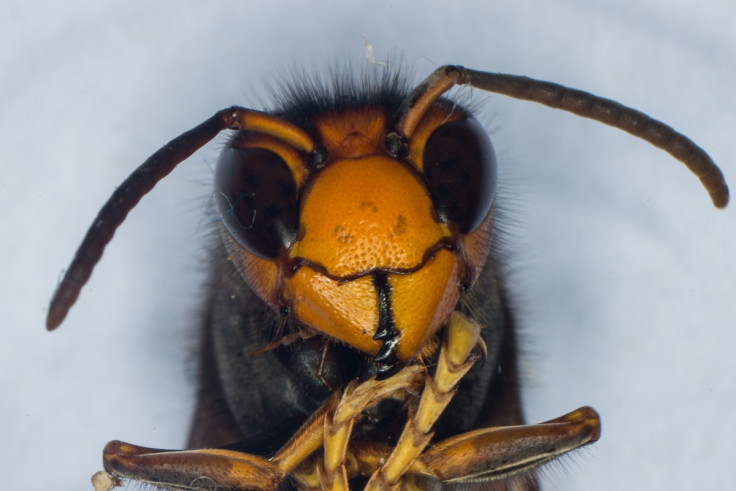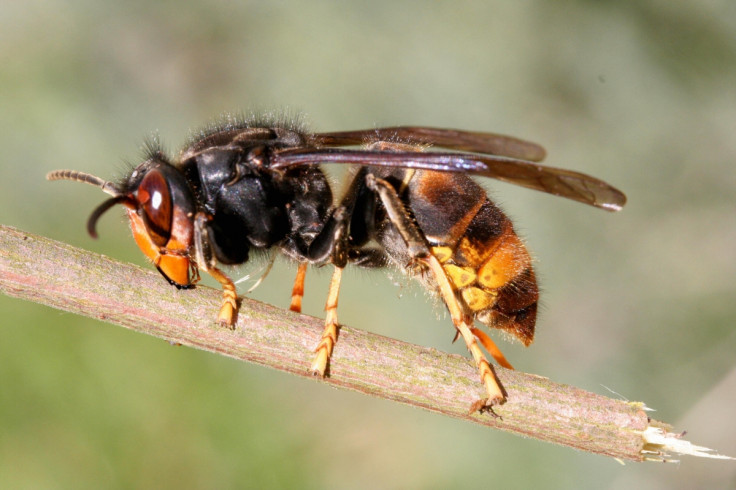Asian 'killer' hornets heading to UK via France expected to slaughter hundreds of wild bees

The public have been told to brace themselves for an influx of Asian hornets, which are almost certain to fly into the UK soon, threatening the existence of our already declining wild bee populations along with them. Experts have said the hornets could cross into the country from France via unchecked plant pots and flowers.
The hornets are capable of killing up to 50 bees per day, and have already spread across Western Europe. Accidentally allowed into France via pottery 12 years ago, the creatures have since been found in Belgium, Germany, Italy, Spain and Portugal.
"Like all invasive non-native species, once established, the Asian hornet would be incredibly difficult and hugely costly to tackle," Camilla Keane told the Daily Mail. "Sadly many other invasive species already wreak havoc in our countryside, and new invasive non-native species are arriving each year, so the issue is not going away."
6,000 hornets in a short space of time...
The Asian hornet is far more vicious than those native to the UK, and can spread from just one nest.

The orange/dark brown creatures lay eggs from April and their population then rapidly grows until it can reach 6,000.
To feed their larvae, the Asian hornet targets bees. They catch them in their jaws, and chomp straight through the bee's body – splitting them into pieces. These remains are then given directly to their young for food.
It has already been estimated that wild bees have declined by about two thirds over the past ten years. Experts fear that the Asian hornet could finish the UK bee population off, should they make it to our shores.
"There is the potential for the Asian hornet to be another factor adversely affecting honey bee hives," said Gavin Broad, senior curator at the Natural History Museum. "The reason the spread of the Asian hornet is being closely monitored is not because it's particularly dangerous to human health, but because it's a specialised predator of honey bees."
Although the main concern is the wild bee – whom we rely on for pollination of our plants and crops – Asian hornets have killed people in the past from their sting.
Since the beginning of 2014, six people have died from Asian hornet stings in France, all from anaphylactic shock.
© Copyright IBTimes 2025. All rights reserved.






















